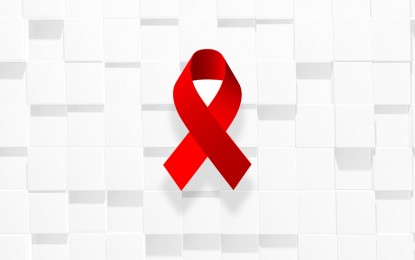
MANILA – Pre-exposure prophylaxis (PrEP) or the use of antiretroviral (arv) drugs by people who do not have human immunodeficiency virus (HIV) infection decreases the acquisition of the disease by 99 percent if done correctly.
In his speech at the World AIDS (Acquired Immunodeficiency Syndrome) Day celebration on Friday, Department of Health special advisor on HIV and infectious disease expert Dr. Edsel Salvana said being diagnosed with HIV is no longer a death sentence, unlike 40 years ago.
“It takes 8 to 10 years to develop AIDS from HIV infection but some subtypes may be faster and some may die in a year,” he said.
“Effective treatment for HIV has been discovered after intensive research. When diagnosed and treated early, life expectancy is nearly restored.”
Apart from not transmitting the virus, Salvana said people living with HIV (PLHIV) can have children and can even be a healthcare worker doing surgery.
He noted that the World Health Organization (WHO) has expanded recommendations on PrEP which has an excellent safety profile, low risk drug resistance and low risk for HIV. It can be taken daily or in an event manner.
“Recently, following the success of long-acting ARV, long-acting injectable PrEP given every 60 days have been approved in some countries, this consists of a single drug, Cabotegravir. The WHO has given it as an additional option for PrEP,” Salvana noted
There are integrase strand transfer inhibitor-based regimens recommended for PLHIV as they are considered highly durable medicines, he added.
As appropriate treatment comes after proper diagnosis, Salvana encouraged vulnerable individuals to take the first step of getting tested.
To better help PLHIV in Quezon City, City Health Department representative Dr. Angel de Guzman said they established eight clinics -- four social hygiene clinics and four sundown clinics -- for better accessibility of HIV testing services for key populations.
“From PHP3 million for the HIV program, for 2024 the approved budget is PHP33 million. This includes the procurement of machines, testing kits,” he said.
The city also created implementing rules and regulations for its HIV/AIDS ordinance and launched HIV learning materials for high school students.
“Soon, we will launch another sundown clinic in Eastwood, Libis, maybe on the latter part of December or early part of January so we can cover the district where testing services are not yet provided for our key populations,” he added.
LGUs' role
The Department of the Interior and Local Government (DILG) also committed to supporting initiatives to end the HIV epidemic.
In a statement, DILG Secretary Benjamin Abalos Jr. said the theme of this year's commemoration, “Let Communities Lead,” emphasizes the importance of a robust and sustainable community-led response against HIV.
Citing data, Abalos said something must be done to address the current situation where the country sees 50 daily new HIV cases this year, which is more than double the 22 daily case rate last year.
“I am appealing to all our local chief executives nationwide to create or reactivate their Local AIDS Councils/Local AIDS Coordinating Body, to take the lead in the implementation of LGU interventions on HIV/AIDS. We also appeal for the support of other sectors and stakeholders to help us create an environment that is responsive to the needs of our vulnerable sectors," he added. (with report from Lloyd Caliwan/PNA)
